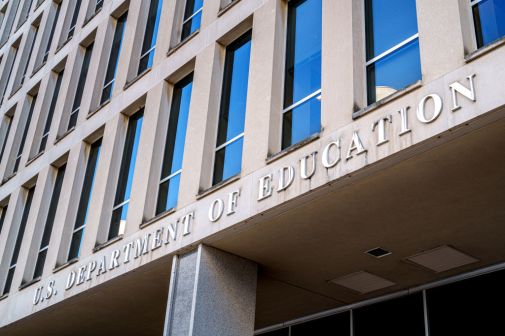Federal leaders push for open license educational resources
A mix of government officials and transparency advocates called for federally funded educational materials to be openly licensed so that different schools can use, share and modify the resources.
Open Educational Resources, also known as OER, could be curricula, courses, virtual labs or other online content — typically copyrighted — that can be repurposed and licensed to the public for free. They are gaining more popularity in K-12 schools.
“We’re not going to go back and change copyright law, but we should say, ‘how can we work around it?’” said Meredith Jacob, who focuses on OER for Creative Commons U.S., a nonprofit group that works to license documents to the public.
Jacob, along with Dipayan Ghosh of the White House, Sharon Leu of the Department of Labor and Chris Lewis of Public Knowledge, pitched the idea at an event Wednesday night at the New America Foundation.
Creative Commons sent a letter this week to Education Secretary Arne Duncan, imploring him to require all recipients of federal grants to make their projects openly licensed.
“We hope that open licensing of publicly funded educational resources will be extended across all other Department of Education programs to ensure the ability to find, access, reuse, and remix publicly-funded educational materials,” the group wrote in the letter.
Ghosh, a policy advisor to U.S. Chief Technology Officer Megan Smith, said the White House should seriously consider ways to make federally backed content more easily available.
“It seems crazy to me that we can’t have a federal policy that just says that, by presumption, we have open licensing on learning resources,” he said. “We have hurdles to overcome, but someday I think that would be a really good goal to pursue.”
Leu, who is moving to the Office of Educational Technology next week to work on higher education initiatives, talked about overseeing the nation’s largest grant program for community colleges. All the projects created by the colleges have to be openly licensed so others can use the materials.
“Creating something for ‘shareability’ purposes is entirely different than just creating something for facility of use,” she said.
Leu used an example of a college in California and another in Texas working on the same project. “Maybe they should work together and share what they have,” she said.
The problem hindering all content from being widely free and available is typically copyright law — even though the government creates materials with public money, they oftentimes contract out the work to consultants and other private workers. But with technology reshaping the way students learn, advocates argue that the process should be rethought.
“Technology has made it really accessible for people to say, ‘Look, I can take these things that are out there and put them together to make really high-quality materials for students,’” Jacob said. “What we don’t want is copyright to be the thing that stops teachers from doing that.”
Reach the reporter at corinne.lestch@fedscoop.com or follow her on Twitter @clestch.






